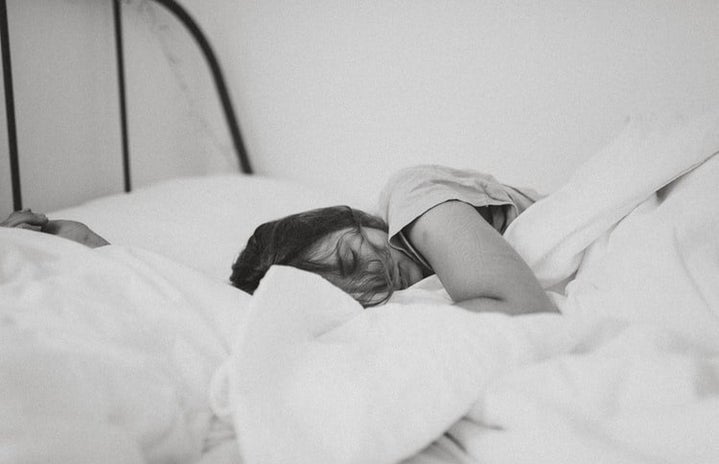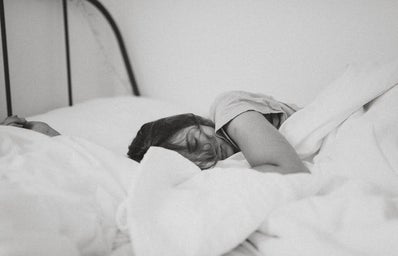From buccal fat removal to “lobotomy chic” and the revival of the 00s supermodel body, it feels like everyone online is romanticising sickness these days. As someone who has spent the majority of their life dealing with awful mental and physical health, I can’t help but wonder why nobody sees how problematic this is.
What is the sick girl AESTHETIC and why is it so problematic?
For those of us who have been on the internet for a while, specifically since the Tumblr days, seeing people romanticising their mental illnesses isn’t something new. Think edgy photos with ‘relatable’ quotes about depression, Lana del Rey lyrics and a hell of a lot of body checking. The new wave of sick girls is simply just these Tumblr girls repackaged and with an even bigger impact…
Whilst I’m all for using your social media accounts as a personal online diary, the issue arises for me when people stop showing the realities of being sick in favour of creating an idealistic version of it. Take ‘lobotomy chic’ for example. The hashtag has a whopping 5.3m views on Tiktok alone and its impact is undeniable. This aesthetic is gendered and upholds some of the problematic, yet ideal, female traits such as submission, fragility, etc.
“The goal (of lobotomy chic), arguably, is the performance of detachment”
Rayne Fisher-Quann, i-D magazine
The romanticisation of lobotomies simply plays into patriarchal standards of what women should be, attempting to twist that into your own nihilistic narrative doesn’t really have the effect you think it does. Female sickness shouldn’t be perceived as an aesthetic when it’s been used against us for years, nor should it be when people like myself have to live with it daily.
But Why Is The Internet So Fixated On Sickness?
I’d argue that the biggest unifier of AFAB people is the experience of female pain. Romanticising that and turning it into something that you can manipulate to fit your needs and wants is arguably the easiest way to regain your power. However, there’s a very thin line between simply trying to regain that autonomy and minimising other people’s experiences.
Turning sickness into an aesthetic crosses that line for me. It creates the idea that suffering, at face value, is a label to describe yourself in order to make yourself seem relatable. You’re a sick girl, Sylvia Plath coded. You spend all your time lounging around in overpriced clothes because you’re just so, so sick — but in a cutesy way, of course
This feeds into the idea that mental and physical illnesses are things that you can control, switching and changing as and when you wish rather than debilitating, life-altering illnesses. It’s tacky and quite frankly, it’s ableist. Maybe one day we’ll turn away from using sickness as an aesthetic, but I don’t see that changing anytime soon.


